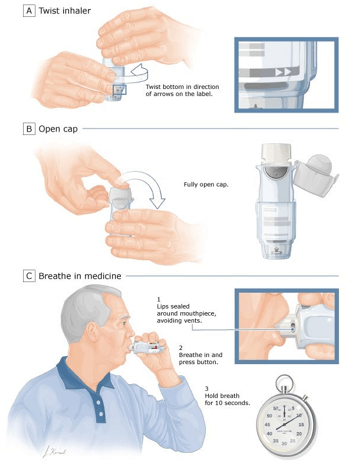A nurse is talking with a client who reports that they have started feeling anxious every time they have to leave their house. Which of the following responses should the nurse make?
"Have you tried leaving your house just once per day?"
"Have you thought about moving to a new neighborhood?"
"Let's discuss how you feel when you leave your house."
"Tell me why you have developed an aversion to leaving your house."
The Correct Answer is C
Choice A Reason:
"Have you tried leaving your house just once per day?" This response assumes a potential solution without fully understanding the client's feelings. It doesn't encourage open discussion or exploration of the client's anxiety.
Choice B Reason:
"Have you thought about moving to a new neighborhood?" This response jumps to a significant life change as a solution without exploring the client's current situation and emotions. It may not be a practical or necessary step.
Choice C Reason:
"Let's discuss how you feel when you leave your house." This response is an open and therapeutic approach that encourages the client to express their feelings and thoughts about the situation. It allows the nurse to gather more information and better understand the client's anxiety related to leaving the house. The other options do not facilitate open communication or exploration of the client's feelings.
Choice D Reason:
"Tell me why you have developed an aversion to leaving your house." While this response is more open-ended, it phrases the question in a somewhat confrontational manner, which might make the client defensive. The previous response ("Let's discuss how you feel when you leave your house") is gentler and inviting.
Nursing Test Bank
Naxlex Comprehensive Predictor Exams
Related Questions
Correct Answer is C
Explanation
Albuterol is a bronchodilator medication that is commonly delivered through a metered-dose inhaler (MDI) to treat asthma and other respiratory conditions. Proper inhaler technique is crucial for effective delivery of the medication to the lungs.
Option (a) is incorrect because the client should actually tilt their head back slightly and breathe out fully before inhaling the medication.
Option (b) is incorrect because the client should take a slow, deep breath in while depressing the canister once.
Option (d) is incorrect because the client should hold their breath for 10 seconds after inhaling the medication to allow it to reach the lungs.
Therefore, the correct instruction for the nurse to include in the teaching is to instruct the client to close their mouth around the mouthpiece of the inhaler to ensure that the medication is delivered directly to the lungs.

Correct Answer is A
No explanation
Whether you are a student looking to ace your exams or a practicing nurse seeking to enhance your expertise , our nursing education contents will empower you with the confidence and competence to make a difference in the lives of patients and become a respected leader in the healthcare field.
Visit Naxlex, invest in your future and unlock endless possibilities with our unparalleled nursing education contents today
Report Wrong Answer on the Current Question
Do you disagree with the answer? If yes, what is your expected answer? Explain.
Kindly be descriptive with the issue you are facing.
